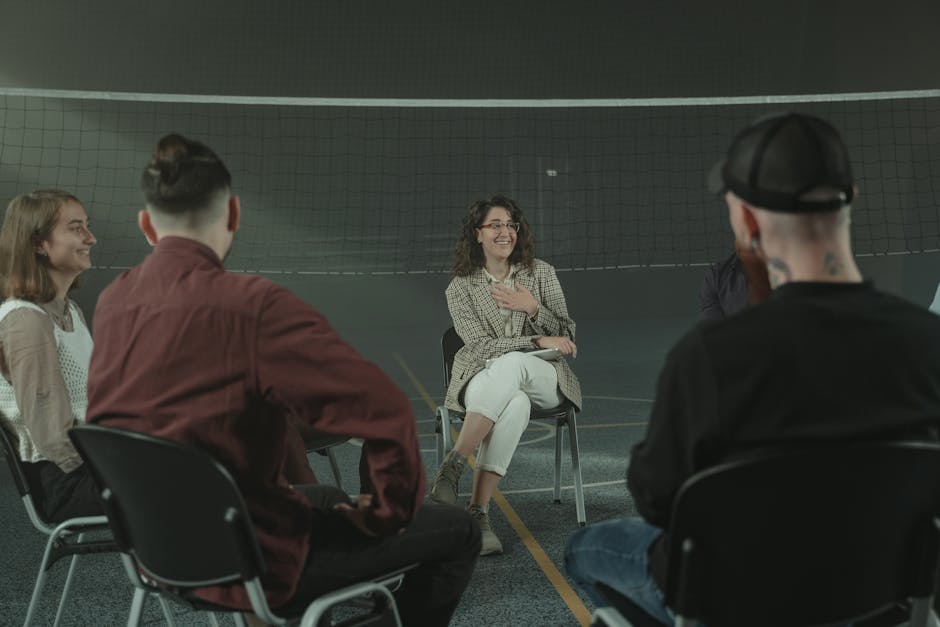James Donaldson notes:
Welcome to the “next chapter” of my life… being a voice and an advocate for mental health awareness and suicide prevention, especially pertaining to our younger generation of students and student-athletes.
Getting men to speak up and reach out for help and assistance is one of my passions. Us men need to not suffer in silence or drown our sorrows in alcohol, hang out at bars and strip joints, or get involved with drug use.
Having gone through a recent bout of depression and suicidal thoughts myself, I realize now, that I can make a huge difference in the lives of so many by sharing my story, and by sharing various resources I come across as I work in this space. http://bit.ly/JamesMentalHealthArticle

Addiction and Adverse Childhood Experiences, Part 1
Pop quiz: At what age do our childhood hurts stop hurting? Put another way, what’s the cutoff point when you shift out of childhood pain and forget it for good?
This is a trick question because the truth is that there is no such magical age. There is no specified time at which the traumas of our childhood suddenly stop being traumatic. So why do we act as though this is true?
These are the things that we tell ourselves when the pain rises up …
“I should just get over it.”
“It was a long time ago.”
“It’s stupid to let that affect me.”
We rationalize and minimize our pain away, but here’s the truth: Time alone does not heal all wounds. On the contrary, our past hurts persist until we heal them.

What Are Adverse Childhood Experiences?
But what are these old hurts that we need to heal? The technical term for them is Adverse Childhood Experiences or ACEs. The Substance Abuse and Mental Health Administration (SAMHSA) defines ACEs as “stressful or traumatic events, including abuse and neglect”.
Here, we’d like to emphasize that the psychological definition of trauma is entirely subjective. If something happened in your childhood that was deeply shocking and upsetting to you personally, then it counts as a trauma. No one else gets to decide what does or doesn’t shock you; it’s all about your internal, felt experience.
That said, there are certain events that are more likely to lead to childhood trauma than others. These events include, but are not limited to:
- Abuse of any kind: Physical, sexual, mental, emotional, and spiritual abuse all count
- Neglect
- Abandonment
- Significant household dysfunction
- Separation from a loved one
- Death of a loved one
- The divorce of one’s parents
- Severe physical or mental illness of a family member
- Imprisonment of a family member
- Witnessing violence, especially against a loved one
- Chaotic, unsafe, or violent home environment
How to Identify Your ACEs
ACEs are the type of events that divide childhood into “before” and “after”. Put another way, they are the events you probably don’t want to talk about, the ones that you perceive as bringing pain, shame, isolation, and suffering into your life.
In the mid-1990s, the Centers for Disease Control and Prevention (CDC) partnered with Kaiser Permanente to conduct a major study of ACEs. Over 17,000 people participated in the study, and you can access an edited version of the questions the researchers asked to determine an individual’s ACE score.
The 10 questions ask about your level of exposure to various abuses, as well as neglect, violence, and relational dysfunction. In the original survey, more than half (64%) of respondents had at least one ACE, while 12% had four or more ACEs.
To access the full quiz, go here: Do You Have Adverse Childhood Experiences? Take the Quiz.
For answers to common questions about ACEs, go here: Adverse Childhood Experiences FAQs

How Adverse Childhood Experiences Affect You on All Levels
On a physical level, it’s easy to understand how abuse and neglect in childhood contribute to poor health in adulthood. When we are deprived of the nourishment we need, we fail to thrive. And when we grow up in an unsafe environment, we learn to live on the alert. This high-stress lifestyle wears down our immune responses and contributes to stress-related illness too.
But what’s less obvious are the ways in which ACEs impact our mental and emotional health.
When we endure traumas in childhood, we try desperately to make sense out of them. We want to understand what has happened to us, yet the stories we tell ourselves about those traumatic events tend to be very painful.
Some common beliefs that arise after trauma include …
- It’s all my fault.
- I should have known better.
- If I’d been better or different, this wouldn’t have happened.
- Something’s really wrong with me.
- I’m a bad person.
- I have to keep this a secret; no one can know.
- I have to protect everyone else; there’s no help for me.
These mental-level beliefs lead to painful emotional-level experiences, as we act in ways that prove our limiting stories true. This hamstrings us in every area of our lives, from our physical health to our relationships to our emotional stability.
The SAMHSA’s overview of ACEs sums up the ACE impact this way: “A person’s cumulative ACEs score has a strong, graded relationship to numerous health, social, and behavioral problems throughout their lifespan, including substance use disorders.”
But the good news is, your past doesn’t have to dictate your present or dominate your future. You can learn how to heal from the trauma of ACEs and alter your life!
Stay tuned for Part 2, where we’ll focus on ACE and substance use disorders. We’ll explore the true nature of ACEs and addiction, and outline how to heal from ACEs and recover from addiction as well.


